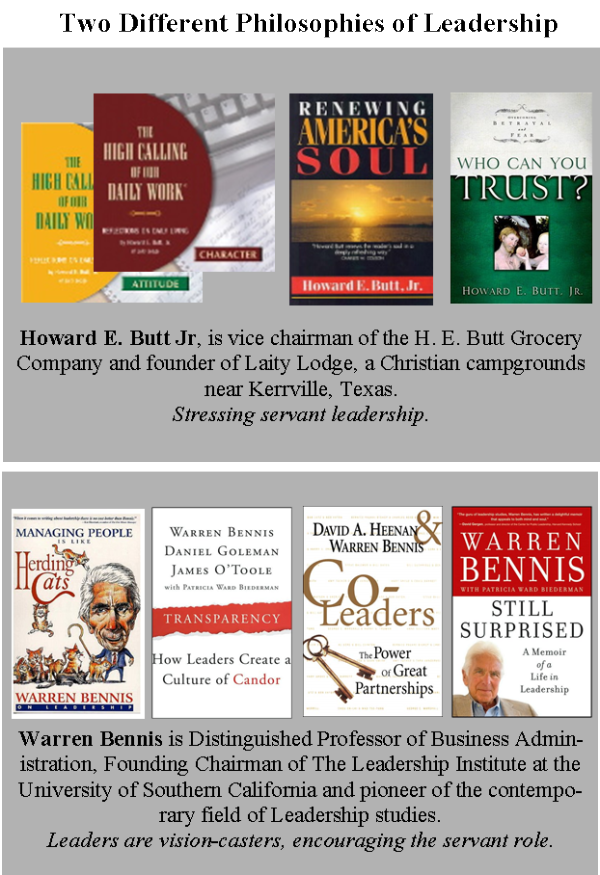The Case for Anonymous Leadership
In Ephesians 4 Paul lists apostles, teachers, evangelists, pastors, and prophets, and goes on to say that these are given to the Church and are accountable to God and to the body. Again the community is stressed, not some individual appointed or selected as leader.
 Leadership, therefore, belongs to the whole community and not to a single person. One of the modern world’s biggest problems when it comes to leadership is that of tossing leadership to a single individual. Usually church boards look for a leader not from within itself but from without. The next big problem is like it, throwing all responsibilities upon the shoulder of that one hired individual. No regatta is ever won this way. The point-man is not solely responsible for leading the cattle to market. Similarly, a congregation’s ministry and world ministry cannot rest upon the leadership of a single individual who then is saddled with being all things to all people. It is no wonder that there are burn-outs in the ministry.
Leadership, therefore, belongs to the whole community and not to a single person. One of the modern world’s biggest problems when it comes to leadership is that of tossing leadership to a single individual. Usually church boards look for a leader not from within itself but from without. The next big problem is like it, throwing all responsibilities upon the shoulder of that one hired individual. No regatta is ever won this way. The point-man is not solely responsible for leading the cattle to market. Similarly, a congregation’s ministry and world ministry cannot rest upon the leadership of a single individual who then is saddled with being all things to all people. It is no wonder that there are burn-outs in the ministry.
There is no lack of good counsel but there is very little ever said about team effort without interjecting something about a “team-inspirer” which loops one back to a single individual who can be singled out as “leader.” This writer particularly like the expressed philosophy of the Faith and Leadership website of Duke Divinity School. “Faith changes the nature of leadership. What distinguishes Christian leadership from other forms of leadership is its purpose—to cultivate thriving communities (italics mine) that bear witness to the reign of God.”2 Leadership belongs to the community or group, not a single individual. Focus needs to be placed “on those less visible who protect our blind sides.”3
What this means from a practical standpoint is the engaging of those within any group, whatever the community of faith, who excel at what they do best in ministry for the benefit of all who are engaged within the Christian world mission. This does not require any single one especially endowed individual. In his first letter to the church in Corinth, the apostle Paul wrote “I was with you in weakness and in fear and in much trembling” (I Cor. 2:3). Further on, he writes “What then is Apollos? And what is Paul? Servants through whom you believed, even as the Lord gave opportunity to each one. I planted, Apollos watered, but God was causing the growth” (I Cor. 3:5-6). Attaching one’s self to a leader who is up front destroys the leadership of the church which emerges out of the weakness and fears and trembling of those who have their hands to the oars of the ship called the church. The greatest strength of Christian leadership emerges from the weaknesses, not the strengths.
Category: Ministry, Spring 2011


